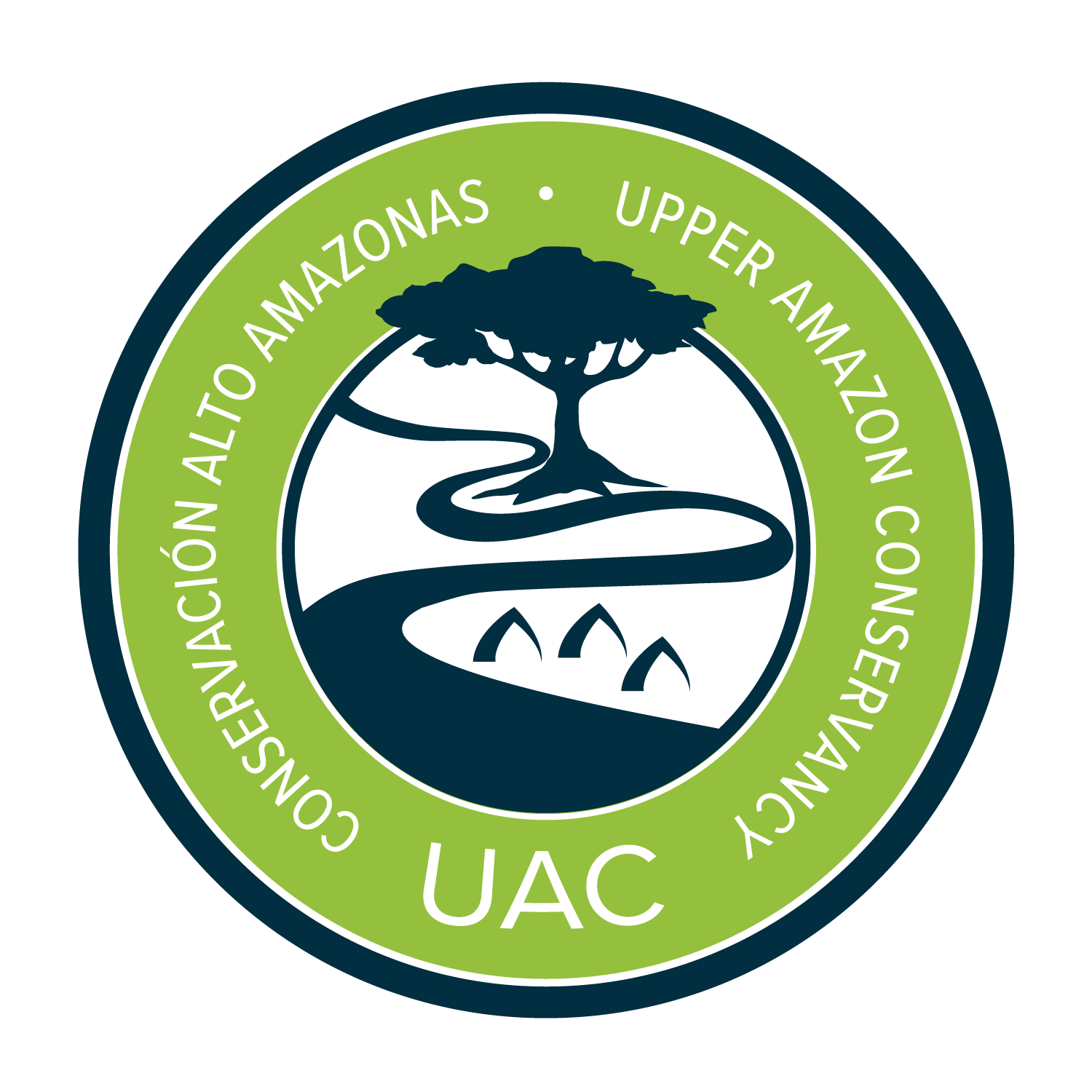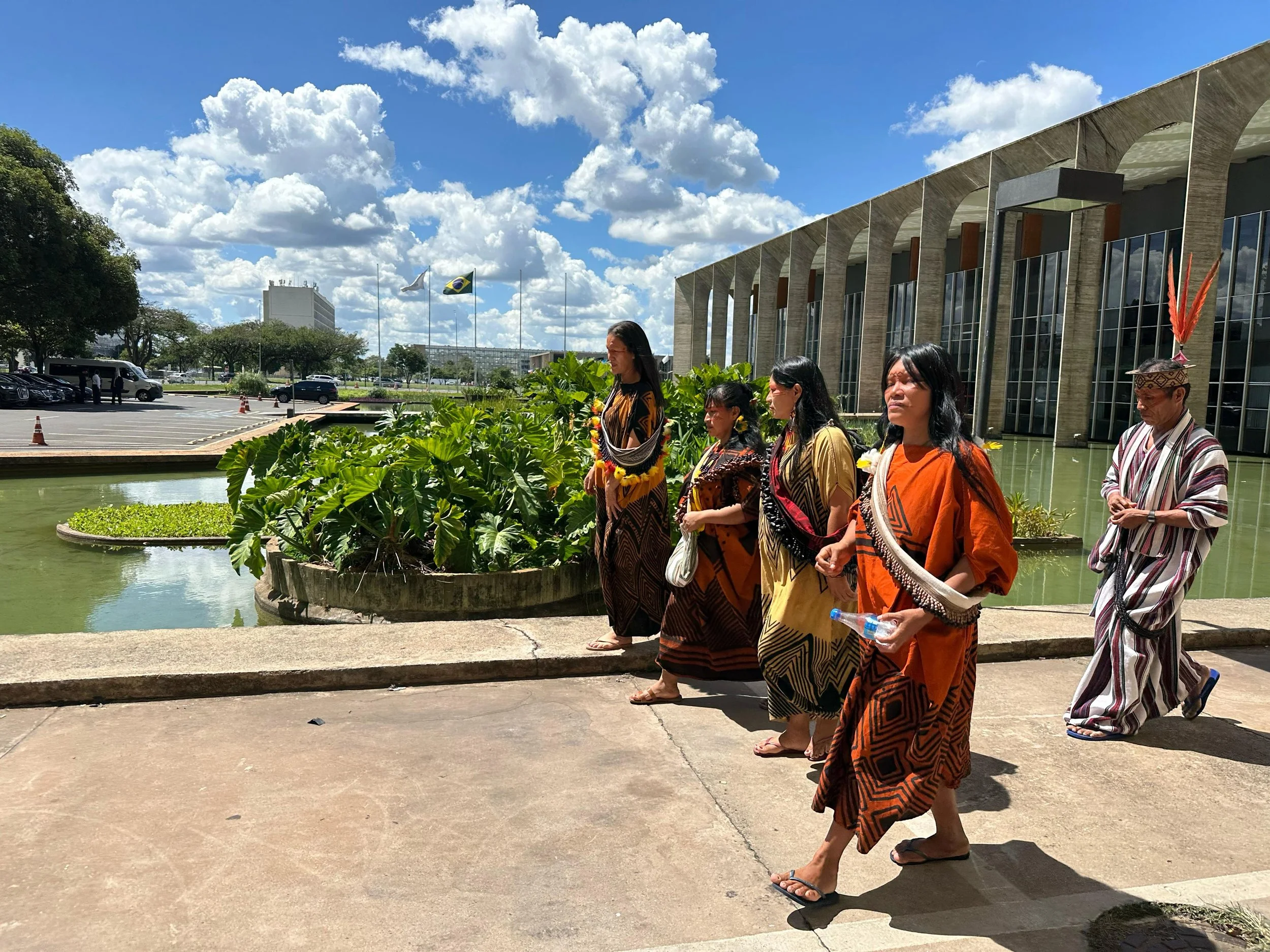Indigenous Peoples from Brazil and Peru Deliver Declaration in Brasília, Urging a Halt to Projects that Threaten Their Territories
Group photo of the Transboundary Commission members.
Brasília, April 2025 — From April 3 to 8, Indigenous leaders representing 12 Native Peoples of the borderlands of Peru and Brazil gathered in Brasília for the 8th Meeting of the Yurúa/Juruá/Upper Tamaya Transboundary Commission. This binational coordination network brings together representatives from Indigenous communities and organizations, as well as allies from both governmental and non-governmental institutions. Their shared mission: to strengthen the defense of their territories and call for immediate action in the face of mounting threats.
Representatives from Ucayali’s Regional Organization of AIDESEP (ORAU), the Association of Native Communities for the Integral Development of Yurúa Yono Sharakoiai (ACONADIYSH), the Asháninka Association of the Amônia River (APIWTXA), and the Organization of Indigenous Peoples of the Juruá River (OPIRJ), together with key allies such as the Pro-Indigenous Commission of Acre, Instituto Fronteiras, and Upper Amazon Conservancy, formally submitted the Brasília Declaration to Brazilian authorities. The document urgently calls for an end to illegal road building, the spread of illicit activities, and the continued failure to protect areas critical to biodiversity.
Illegal Road Construction on the Peru Side Raises Alarm
Francisco Piyanko, president of OPIRJ (Brazil), explains the map showing the proposed UC-105 road route.
The declaration expresses serious concern over the illegal construction of the UC-105 road. which connects Nueva Italia to Puerto Breu in Peru. According to a study by the University of Richmond, this road has caused the deforestation of over 4,000 hectares between 2016 and 2023. Indigenous leaders emphasize that such infrastructure projects—carried out without prior consultation—violate collective Indigenous rights and threaten international commitments to fight climate change.
While in Brasília, members of the Commission and delegation representatives met with officials from Brazil’s Ministry of Foreign Affairs, Ministry of Justice and Public Security, Ministry of Indigenous Peoples, and the National Indian Foundation (FUNAI). They also participated in the Free Land Camp, They also joined the Free Land Camp, joining other movements in demanding legal recognition and protection of Indigenous territories in Brazil.
Urgent Demands to Defend Territories and Protect Isolated Tribe
The Brasília Declaration calls for:
The establishment of permanent monitoring posts along the border
Joint territorial control operations between Peru and Brazil
Immediate measures to protect Indigenous Peoples in Isolation and Initial Contact (PIACI)
Justice for the four leaders of the Alto Tamaya-Saweto community, murdered in 2014—including the pre-trial detention of those responsible
In addition, the Commission called for the formal recognition of threats to the Amônia, Shesea, Tamaya, Dorado, and Shatanya rivers—crucial for protecting local biodiversity and essential to the global hydrological cycles.
“We are not against development. We are against development that is imposed without respect for life and the forests,” stated Indigenous organizations in the Declaration.
At Upper Amazon Conservancy, we reaffirm our commitment to the defense of Indigenous territories and protecting the forests in the Amazon headwaters. We stand firmly with our Indigenous allies in their demand for just, respectful, and sustainable development.
Other media coverage:



